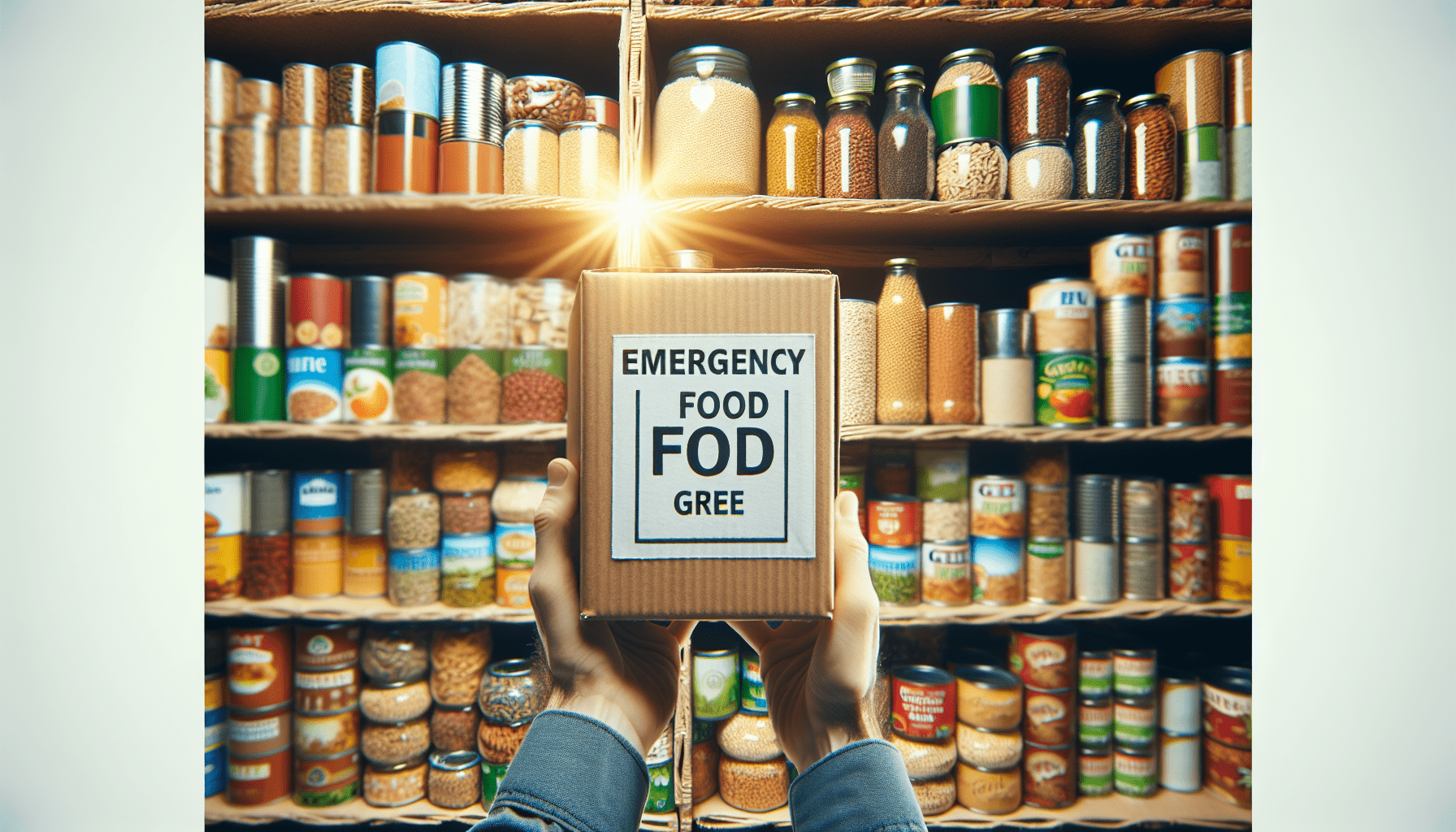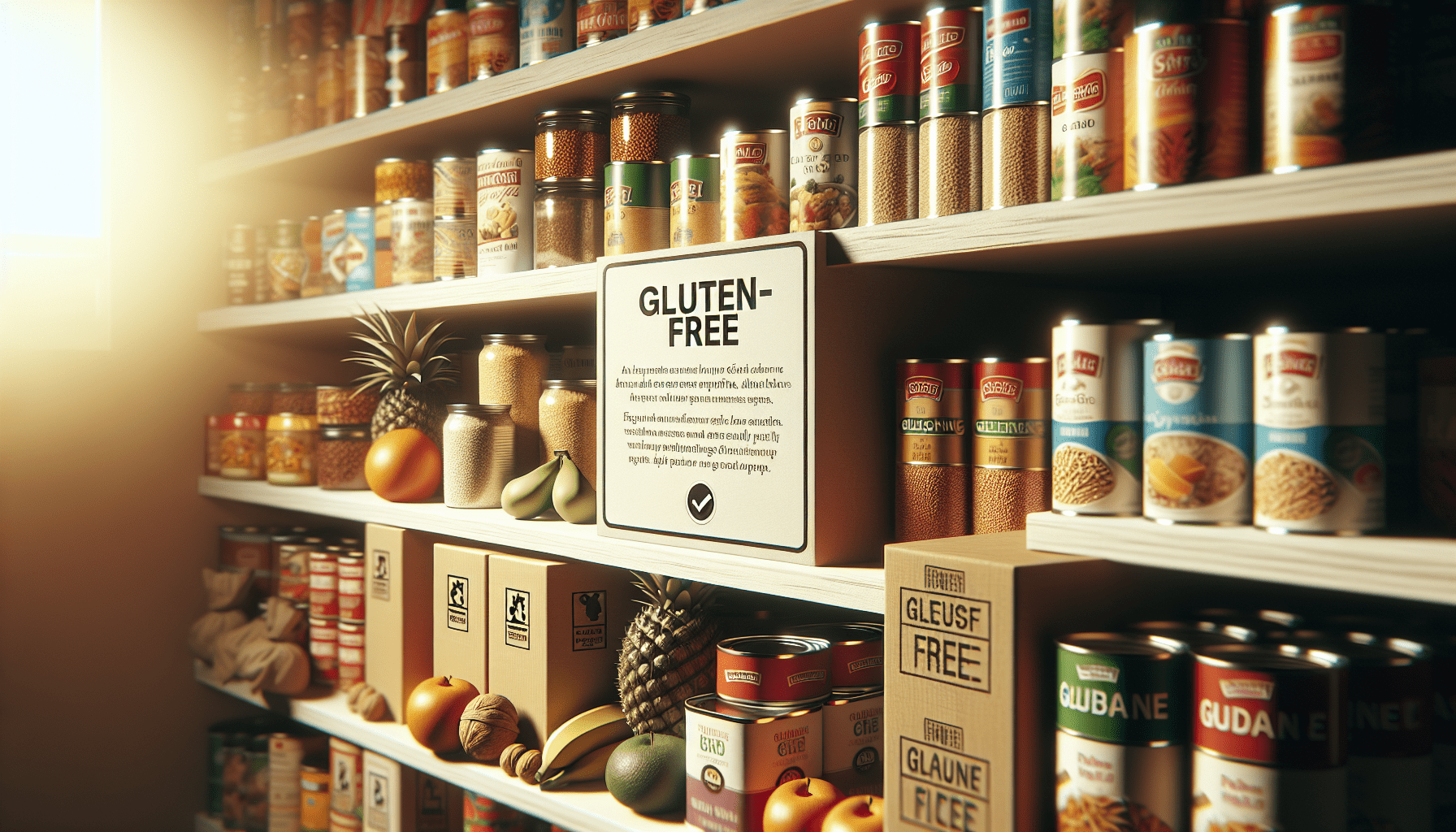Have you ever thought about what you’d do if a sudden emergency left you without access to fresh food or groceries for an extended period of time? As we all strive to be prepared for such unforeseen circumstances, planning an emergency food supply becomes quite important. But have you ever considered the dietary restrictions that might influence your choices when stocking up your emergency pantry?

Understanding Dietary Restrictions
When planning your emergency food supply, taking into account the dietary restrictions of yourself or your family members is crucial. Dietary restrictions can stem from medical conditions, personal choices, or religious practices. Let’s dive into these considerations.
Medical Dietary Restrictions
Some individuals must adhere to specific dietary practices due to medical conditions. Understanding these needs is key to managing health effectively during an emergency.
Gluten-Free Diets
For individuals with celiac disease or gluten intolerance, ensuring a gluten-free emergency food supply is vital. Foods like rice, quinoa, and gluten-free pasta are excellent options to consider. Avoid stocking wheat-based products unless they’re certified gluten-free.
Lactose Intolerance
If lactose intolerance is a concern, it’s important to include dairy-free options like almond milk, soy milk, or lactose-free milk. There are also a variety of plant-based cheese and yogurt options available.
Low-Sodium Diets
For those on low-sodium diets, choosing unsalted or low-salt versions of canned foods, snacks, and ready-to-eat meals is important. Fresh produce and dry grains are excellent choices.
Personal and Lifestyle Dietary Choices
Many people make personal or lifestyle choices when it comes to their diets. These preferences should not be overlooked when planning for emergencies.
Vegetarian and Vegan Diets
For vegetarians and vegans, plant-based foods such as beans, lentils, tofu, and a variety of vegetables are essential. Consider including shelf-stable plant-based protein sources and dehydrated vegetables.
| Item | Vegan? | Vegetarian? |
|---|---|---|
| Canned beans | Yes | Yes |
| Lentils | Yes | Yes |
| Dehydrated tofu | Yes | Yes |
Organic Preferences
Some prefer organic products. While organic foods can be pricier, stocking up on essential organic staples like grains, pasta, and canned goods can help maintain this preference during emergencies.
Religious Dietary Restrictions
Certain religious practices require specific dietary adherence. Let’s explore some common religious dietary restrictions and considerations for your emergency planning.
Kosher Diets
Adhering to a kosher diet means stocking up on kosher-certified foods. Ensure that meats and dairy are separated, and select processed foods only if they’re explicitly labeled as kosher.
Halal Diets
For those following a halal diet, foods should comply with Islamic law. Ensuring meat and animal-based products are halal-certified is essential. Stock non-meat protein options like beans and legumes.
Nutritional Balance in an Emergency Supply
Planning an emergency food supply goes beyond just ensuring you have enough food. You must also focus on nutritional balance to keep yourself healthy and energized.
Macronutrients
Achieving a balanced intake of carbohydrates, proteins, and fats is crucial, even in emergencies. This involves carefully selecting items that cover all essential macronutrient needs.
Carbohydrates
Carbohydrates are essential for energy. Stock foods like rice, pasta, and oats, which have a long shelf life and are easy to prepare.
Proteins
Protein is critical for muscle maintenance and repair. Opt for shelf-stable protein sources such as canned beans, nuts, seeds, and preserved meats.
Fats
Healthy fats, such as those from nuts, seeds, and oils, are vital for brain function and overall energy. Include stored nuts and bottled vegetable oils in your pantry.
Micronutrients
Micronutrients are vitamins and minerals necessary for maintaining proper health, and ensuring adequate intake can be challenging during emergencies.
Vitamins and Minerals
Consider multivitamins as a supplement to ensure you are meeting your nutritional requirements. Additionally, non-perishable fruits and vegetables can help cover micronutrient needs.

Storing Your Emergency Food Supply
Careful consideration of food storage is essential, to ensure that your emergency supply remains safe and nutritious until you need it.
Storage Conditions
Proper storage conditions prevent food spoilage, extend shelf-life, and maintain nutritional quality.
Temperature
Maintaining a consistent, cool temperature is key to preserving the quality of most food items. Keeping your pantry environment dark and dry also helps prevent spoilage.
Organization
Organize your pantry to rotate supplies, using the oldest items first. This practice helps prevent waste and ensures a constant rotation of fresher items.

Considering Special Situations
Special situations like allergies, children, and elderly needs should also influence your emergency food supply planning.
Food Allergies
Food allergies pose serious health risks and must be accommodated. Always read labels and stock alternatives that are free from common allergens like nuts, shellfish, or dairy if needed.
Needs of Children and the Elderly
Children and the elderly may have distinct nutritional requirements. Including items like formula or baby food for infants, and easy-to-consume options for older adults, is essential.
Special Foods
Ensure you have appropriate snacks or meal replacements that meet the nutritional benchmarks for these sensitive age groups.

Waste Minimization and Expiry Management
Reducing food waste and efficiently managing expiry dates are key aspects of a well-maintained emergency food storage.
Regular Checks
Regularly check your food supply for approaching expiration dates, and set reminders for when items need to be replaced.
Repurposing Expired Items
Consider ways to safely use food close to expiry, such as incorporating them into meals before they fully spoil. This practice reduces waste and keeps your inventory efficient.

Final Thoughts
Planning an emergency food supply is a critical step in ensuring preparedness for unexpected situations. By keeping dietary restrictions in mind and focusing on nutritional balance, storage conditions, and special situations, you can create a comprehensive pantry that caters to everyone’s needs. Ultimately, preparation leads to peace of mind, enabling you to face challenging situations with confidence and assurance.

